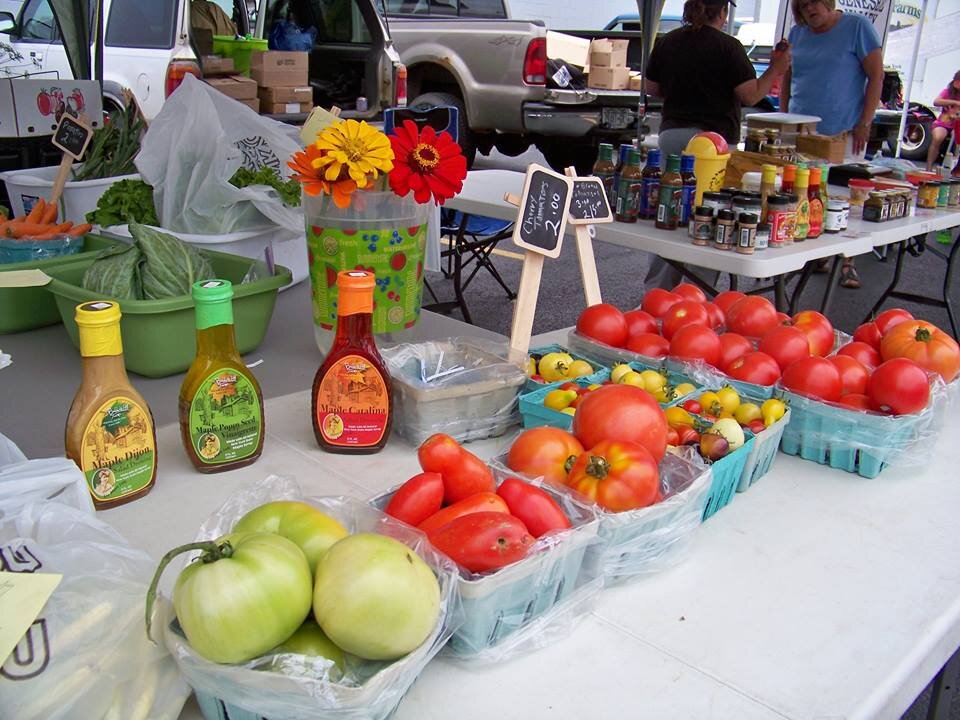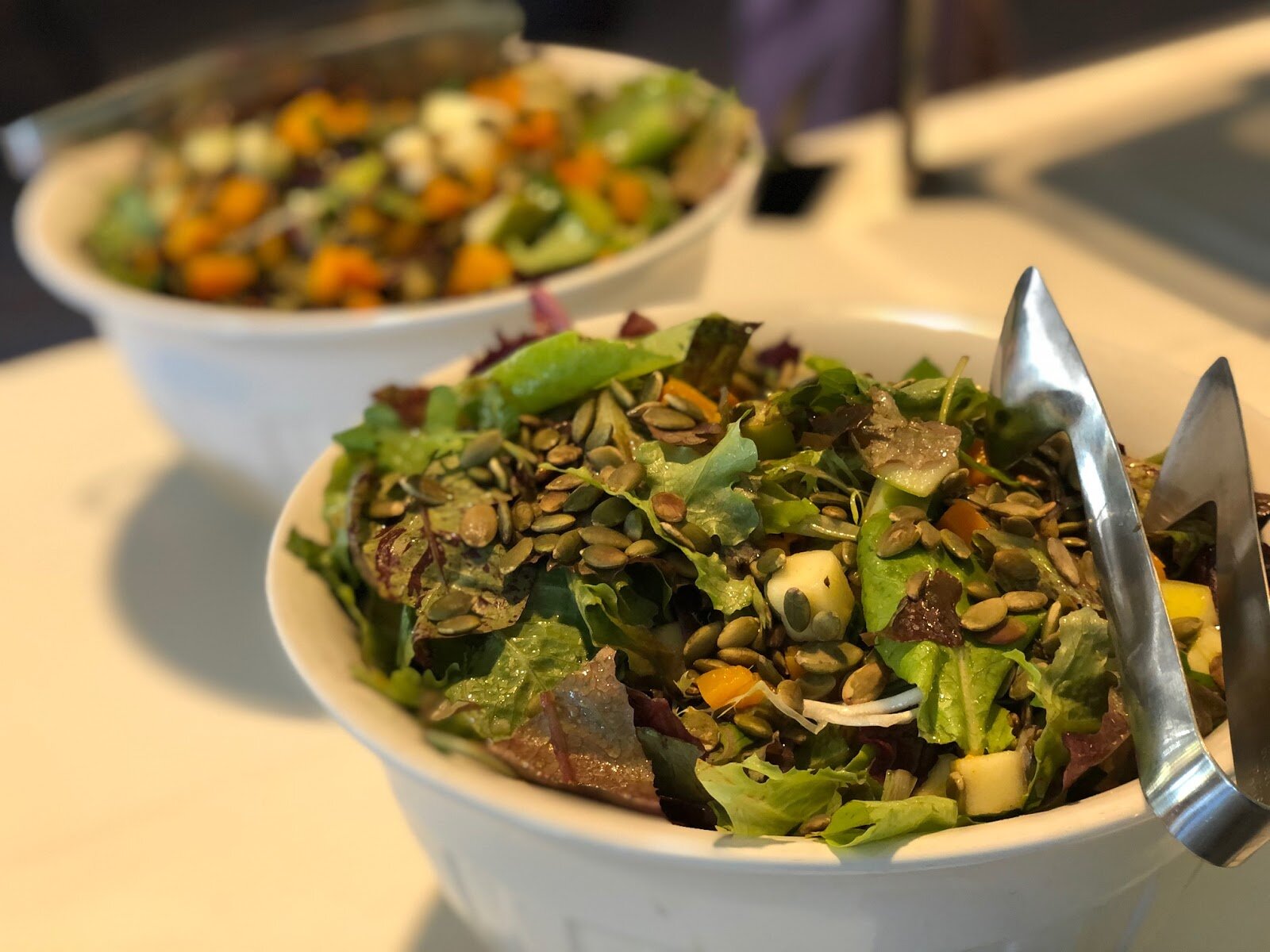For the past fourteen years, the Terroir Symposium has brought together the top hospitality and tourism industry professionals from around the world to connect, learn, and collaborate. This year’s symposium featured talks on trends in the current food landscape, regenerative farming, community collaborations, and more. While the Culinary Tourism Alliance usually hosts Terroir in Toronto, this year due to the coronavirus pandemic the symposium went entirely virtual. With funding from the municipalities of Geneseo, Mount Morris, and Perry, and a grant from the USDA, Letchworth Gateway Villages (LGV) was able to provide tickets to the symposium for twenty people involved in the local food scene, from chefs to farmers to economic development agencies.
“Terroir is, very literally, a sense of place: the characteristics inherent to a place that give its agricultural products a unique flavor, such as climate, soil, and ways of farming.”
Jacquie Billings of the Hole in the Wall Restaurant & Lounge and Ration Wine Bar, Gabrielle Vogel of the Hole in the Wall, Jill Gould of Butter Meat Co., Jeremy Clark of Hopp’d and Brew’d Sauce Co., and Nicole Manapol of Letchworth Gateway Villages at the 2019 Terroir Symposium.
The inspiration for this symposium comes from the French concept of terroir, the environmental, geographically-specific factors that give a crop its distinct taste, an idea that winemakers originally developed to describe wine from different areas. Terroir is, very literally, a sense of place: the characteristics inherent to a place that give its agricultural products a unique flavor, such as climate, soil, and ways of farming. Because each location has its own terroir, some savvy business owners have started promoting terroir tourism, appealing to food and beverage lovers who want a tourism experience they can’t get anywhere else. As the Culinary Tourism Alliance determined in their white paper for LGV (“The Role of Food Tourism in the Development of Rural Destinations”), tourists in this day and age are looking for authenticity when they travel, and terroir is as authentic as it gets. Importantly, too, terroir tourism is a sustainable and lasting source of income for rural areas: “From an economic development standpoint focusing on our assets that can't be found anywhere else... means that we are future-proofing our economy. Terroir cannot be outsourced to another community or country,” says Nicole Manapol, director of LGV.
“Tourists in this day and age are looking for authenticity when they travel, and terroir is as authentic as it gets.”
Display of fresh tomatoes and maple syrup products at the Perry Farmers’ Market.
The coronavirus pandemic has only strengthened the urgency to focus on the local. Dr. Sylvain Charlebois, Director of the Agri-Food Analytics Lab at Dalhousie University in Canada, spoke at the Terroir Symposium about how his office has given 65-70 interviews a week due to people’s anxiety about what food supply chains will look like post-COVID. Dr. Charlebois was clear: the distribution and economics of food will change and food producers should create their own rules in order to succeed. For example, the lab expects online food sales to triple this year. While meat plants around the country have become coronavirus hot spots, the Genesee Valley has seen a surge of interest in eating locally. Two Facebook groups, Livingston County Menus and Find Your Farmer Western NY, emerged at the beginning of the pandemic and now have a combined 14,000 members. “The pandemic, I think, has brought us closer as a community and has highlighted the importance of our local agriculture and food industry and why it is so important for us to invest in local businesses and supply chains,” Manapol explains. “Instead of braving crowded supermarkets or purchasing meat from large-scale processing plants that put workers' lives at risk, consumers in the Genesee Valley were lucky to be able to turn to small businesses and local producers to secure food during the pandemic. This gave us all a new appreciation for our agriculturally rich region and the ability to know our farmers and the origins of our food.”
“The distribution and economics of food will change and food producers should create their own rules in order to succeed.”
Salad of local lettuce, pears, candied squash, and pumpkin seeds made by Chef Sean Wolf for Letchworth Gateway Villages’ Food Tourism Forum in October of 2019.
Over and over, the Terroir Symposium showed how building a local and sustainable food movement, while expensive upfront, is possible in rural communities and worthwhile, both economically and socially, in the long run. Chefs can play an important role in advocating for these values and bringing about change. The Chefs’ Manifesto, for example, brought together 100+ chefs from around the world to create a framework for addressing the food issues that matter the most to them, from investment in livelihoods to protection of biodiversity. Sean Wolf, former head chef at Farmer’s Creekside Tavern & Inn in LeRoy and the Big Tree Inn in Geneseo, said the Terroir discussion of the Chefs’ Manifesto “really made me feel excited to get back to work on waste initiatives and ways we can work towards these sustainability goals on a nano-level in our community.” Likewise, Melanie Alvarez of the Borikén Restaurant in Mount Morris, came away from Terroir feeling more inspired to “support local businesses as much as possible and create healthy partnerships” while interpreting Puerto Rican cuisine for her upstate New York clientbase. When chefs buy from local farmers, not only are they helping to support the farmers financially, but they are also telling the story of their heritage and region, strengthening the ties within their community and making their area more attractive to tourists as a place where they can have authentic food-based experiences. This approach, Manapol argues, “can bring real wealth, equity and overall wellbeing to communities like ours.”
“Building a local and sustainable food movement, while expensive upfront, is possible in rural communities and worthwhile, both economically and socially, in the long run.”
“You can’t build community alone.” Aman Dosanj of the Okanagan Valley in British Columbia reiterated this point multiple times in her talk “Collaboration in Culinary Tourism,” but this statement indisputably describes the message of the Terroir Symposium as a whole. Every business, every farm, every municipality is important to conserve and showcase the terroir of the Genesee Valley. “I wasn’t expecting the Terroir Symposium & Terroir Talks to weave together food, interpretation, preservation, and sustainability as they did,” says Sandy Schneible, president of littleHive and member of the LGV advisory committee. “Beyond the inspiration and information offered by the presenters, I found the multi-faceted nature of the symposium to be a compelling expression of why cross-sector collaboration matters and why there’s never been a more important time to invest in local businesses and supply chains.”





